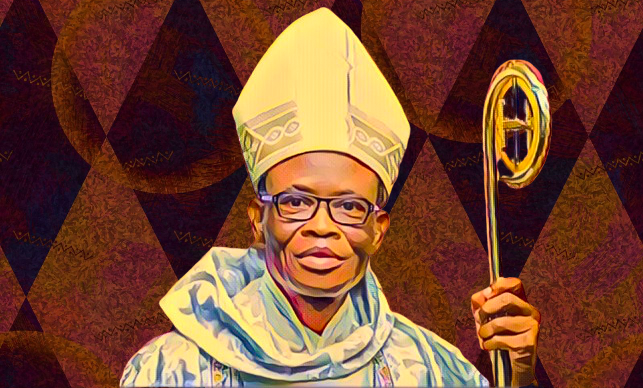A prominent Ghanaian bishop has urged President Nana Akufo-Addo to sign the Promotion of Proper Human Sexual Rights and Ghanaian Family Values Bill 2021, also known as the Anti-LGBTQ+ Bill.
Most Reverend Alfred Agyenta, the Bishop of the Catholic Diocese of Navrongo-Bolgatanga, believes the bill reflects the will of the Ghanaian people. He pointed to the unanimous passage of the bill by Parliament as evidence of overwhelming public support.
“The whole Parliament of Ghana has unanimously passed this Bill, so more than 95 percent of Ghanaians are saying that we don’t want to promote this kind of life (LGBTQ+),” Bishop Agyenta said. “What more clarity do we need?”
Drawing Parallels with the Crucifixion of Jesus
During his Easter sermon delivered at the Sacred Heart Cathedral Parish in Bolgatanga, Bishop Agyenta compared the president’s current situation to that of Pontius Pilate.
He urged President Akufo-Addo not to succumb to external pressure, similar to how Pilate yielded to the demands of the crowd calling for Jesus’ crucifixion.
“I have been wondering whether our President is not in the shoes of Pilate because he knows that the decision of Parliament is the mind of all Ghanaians and yet some people are telling him not to sign this bill because there will be consequences,” Bishop Agyenta stated.
The Bill and its Critics
The Anti-LGBTQ+ Bill has been met with significant international criticism. Human rights groups condemn the legislation, arguing that it discriminates against and criminalizes LGBTQ+ individuals.
President Akufo-Addo has yet to announce his decision on the bill. While some Ghanaians support the legislation, there are concerns about its potential impact on the country’s international relations and human rights record.
Looking Ahead: A Divisive Issue
The Anti-LGBTQ+ Bill remains a contentious issue in Ghana. Bishop Agyenta’s call to action highlights the deep societal divisions surrounding LGBTQ+ rights in the country.
While the bill’s future remains uncertain, it has sparked renewed debate about social values, human rights, and the role of religion in Ghanaian society.
Source: Graphic Online





2 comments
I don’t think the title of your article matches the content lol. Just kidding, mainly because I had some doubts after reading the article.
Your point of view caught my eye and was very interesting. Thanks. I have a question for you.